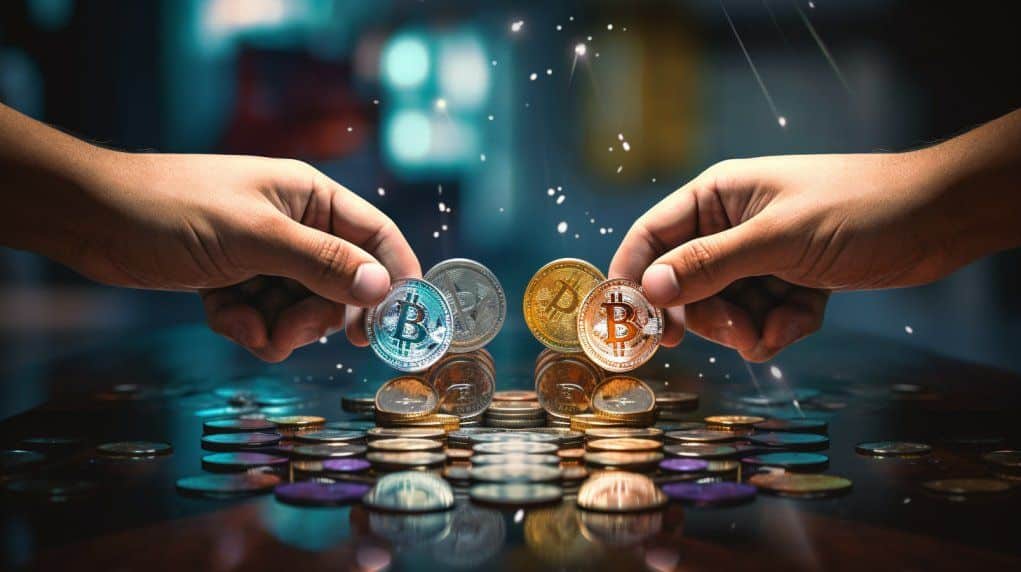Exploring the Dynamic World of Perpetual Futures in Crypto Trading
Perpetual futures contracts are revolutionizing crypto trading, offering unique advantages and flexibility. This financial instrument allows traders to bet on the future prices of cryptocurrencies without owning the actual assets. Its structure and trading benefits are making waves, introducing a blend of futures and spot trading mechanics.
What Makes Perpetual Contracts Stand Out?
Unlike their traditional counterparts, perpetual contracts don’t come with an expiration date. This significant feature adds a layer of flexibility for traders, enabling them to hold positions as long as they desire. Market enthusiasts and notable figures like Arthur Hayes have pointed out the high-profit potential, though not without mentioning the inherent risks of liquidation.
Another key aspect is the funding rate mechanism. It’s a pivotal tool ensuring that perpetual contract prices closely align with the underlying asset’s spot price. This balance mechanism fosters market efficiency and fairness, especially appealing for those looking to take advantage of both futures and spot trading opportunities.
Definition of Perpetual in Crypto
In the realm of cryptocurrency, “perpetual” refers to the enduring nature of these contracts. They enable traders to speculate on asset prices indefinitely, bypassing the limitations of traditional futures’ set expiry dates. This distinction is crucial for understanding the perpetual contracts’ growing popularity among crypto investors.
Perpetual Contracts
Perpetual contracts are akin to traditional futures but without an expiry. This crypto derivative lets traders speculate on asset price movements, maintaining positions indefinitely facilitated by a unique pricing mechanism involving funding rates. Well-known exchanges have been at the forefront, offering these contracts to create a liquid market for crypto enthusiasts.
Perpetual Swaps
Similar to perpetual contracts, perpetual swaps lack an expiry and use funding rates to align prices with the spot market. What sets them apart is their leverage options, empowering traders to handle larger positions with less capital. This leveraged trading, however, amplifies both gains and risks. Platforms like FTX and Deribit are notable venues for such trades, offering diverse cryptocurrencies and high leverage, making these instruments a cornerstone of crypto trading.
Mechanics of Perpetual Contracts
Perpetual contracts thrive in crypto trading by allowing speculation without direct asset ownership. The absence of an expiry date compared to traditional futures means traders can stay in positions indefinitely, leveraging margin and funding rates to manage their trades effectively.
Margin and Leverage
These contracts require a margin as collateral to open and maintain positions. Leverage amplifies this further, allowing significant control over sizable amounts with minimal capital. However, it brings a proportional increase in risk, highlighting the importance of cautious leverage use.
Funding Rates
Funding rates are essential for perpetual contracts, adjusting the price to mirror the spot market accurately. This mechanism balances the demand between long and short positions, ensuring fair pricing and aligning perpetual futures closely with real-time asset values.
Trading Perpetual Contracts
Trading these contracts involves various order types and risk management strategies. From market to limit orders, each has implications on execution speed and price. Risk management is crucial, with leverage adjustment and stop-loss orders serving as primary tools against volatile market movements.
Role in Portfolio Management
Perpetual futures play a dual role in hedging and speculation within crypto portfolios. They provide a mechanism for mitigating market volatility through opposed positions and leveraging market predictions for profit, showcasing their versatility and strategic value in investment management.
Comparison with Traditional Financial Instruments
When compared to traditional financial instruments, perpetual futures stand out for their no-expiry nature and specific price mechanisms. The peculiarities in duration, price adjustment methodologies, and risk profiles between these and instruments like options underscore the unique space perpetual contracts occupy in financial markets.
Regulatory Aspects of Perpetual Contracts
The innovative nature of perpetual contracts brings them under the regulatory radar, with jurisdictions applying varying levels of scrutiny. Agencies emphasize the need for transparency and user protection, advocating for balanced regulations that safeguard investors without stifling innovation.
Challenges and Risks Associated with Perpetual Contracts
Despite their attractive features, perpetual contracts carry challenges and risks, primarily from market volatility and liquidity concerns. Traders must navigate these carefully, employing strategies to mitigate sudden market shifts and liquidity shortages to maintain stable trading operations and protect investments.
As perpetual futures continue to shape the landscape of crypto trading, understanding their nuances, benefits, and risks is imperative. This dynamic instrument offers promising opportunities for informed traders ready to navigate its complexities.
